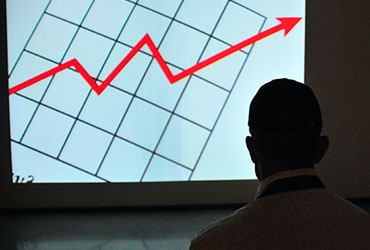There are worrying signs across the US and Europe that a credit crunch is beginning to bite with banks drawing back from lending making it more difficult for companies to obtain loans and lines of credit. In the United States, the collapse of Signature Bank, Silvergate Bank and Silicon Valley Bank, plus the buyout of First Republic Bank by JPMorgan Chase, seems to have started a period whereby credit availability is drying up.
Yes, it can be agreed that since the debacle of the abovementioned banks that the markets in the United States have rebounded, but many small businesses have reported difficulty in obtaining credit with availability at levels not seen since post the Global Financial Crisis of 2007 – 2009. The Federal Reserve have announced that banks have tightened their lending criteria, corporate bankruptcies are on the rise, (particularly in retail and construction industries), as are defaults on loans and bonds, plus distressed level corporate debt trading is up by circa 300%.
Analysts are reporting that some of the bigger banks in the United States are bracing themselves for a swathe of bad loans with Citigroup Inc reporting that they have set aside USD 2 Billion to offset bad loans up 200% from 2020. Whilst the signs are not good a number of experts are indicating the present dilemma is a credit crunch but they do not expect it to blow up into a fully-fledged credit crisis.
Elsewhere the threat of a credit crunch looms heavily over the Eurozone where bank officials are busy slapping each other on the back having so far shrugged off any contagion from the mid-sized banking crisis in the United States. The strict regulations surrounding bank liquidity has had the champagne corks popping, but beware, the contracting money supply may well indeed take the bubbles from the champagne. Indeed, core inflation is stuck at 5.6%, (ECB inflation target circa 2%), bank lending is contracting, and the eurozone economy has stopped dead in its tracks and is showing signs of approaching recessionary conditions
The biggest uncertainty is high inflation and the cost to the economies in higher interest rates as central banks struggle to keep inflation under control. Many experts, analysts and commentators suggest the risk of a credit crunch is definitely on the horizon especially after the recent banking crisis in the United States and to some extent Switzerland. Despite optimistic statements from the European Central Bank, their own latest banking survey shows that net credit standards are being tightened by lenders at a pace similar to that seen during the Eurozone Debt Crisis 2011.
In fact, analysts report that in Q1 2023 across the Eurozone and within the banks’ overall terms and conditions (T&C’s), loans to households were tightened, and with regard to firms tightening standards were even more aggressive. Reports from banks also confirm that a reduction in demand for loans or drawings from lines of credit was due to increased levels in interest rates. This could have deep consequences for an economy where 93% of total credit relies on bank lending.
In the United Kingdom, despite the recent banking crisis many economists suggest that despite monetary tightening by the Bank of England there is not much evidence to suggest banks are reigning in their lending policies. However, experts suggest that in Q2 there is an expectation that new mortgages will be reined in, and confirm that there is little evidence to show that a credit crunch is about to hit the economy.
Experts are also suggesting that the United Kingdom will avoid a protracted recession in 2023, thereby avoiding a lasting crunch, but there is still a massive cost of living crisis which for the majority of household owners will feel like a recession. Inflation remains exceptionally high at 10.5% having peaked in October 2022 at 11.1%, such levels have not been seen since the 1980’s.
If interest rates continue to rise both in the United States and the Eurozone, the fight against inflation could easily spill over into a full-blown recession. Central banks continue to walk the thin line between controlling inflation and inviting recession, and no amount of back slapping and “Oh haven’t we done well?” will halt the onset of recession unless careful analysis of their policies is employed.

